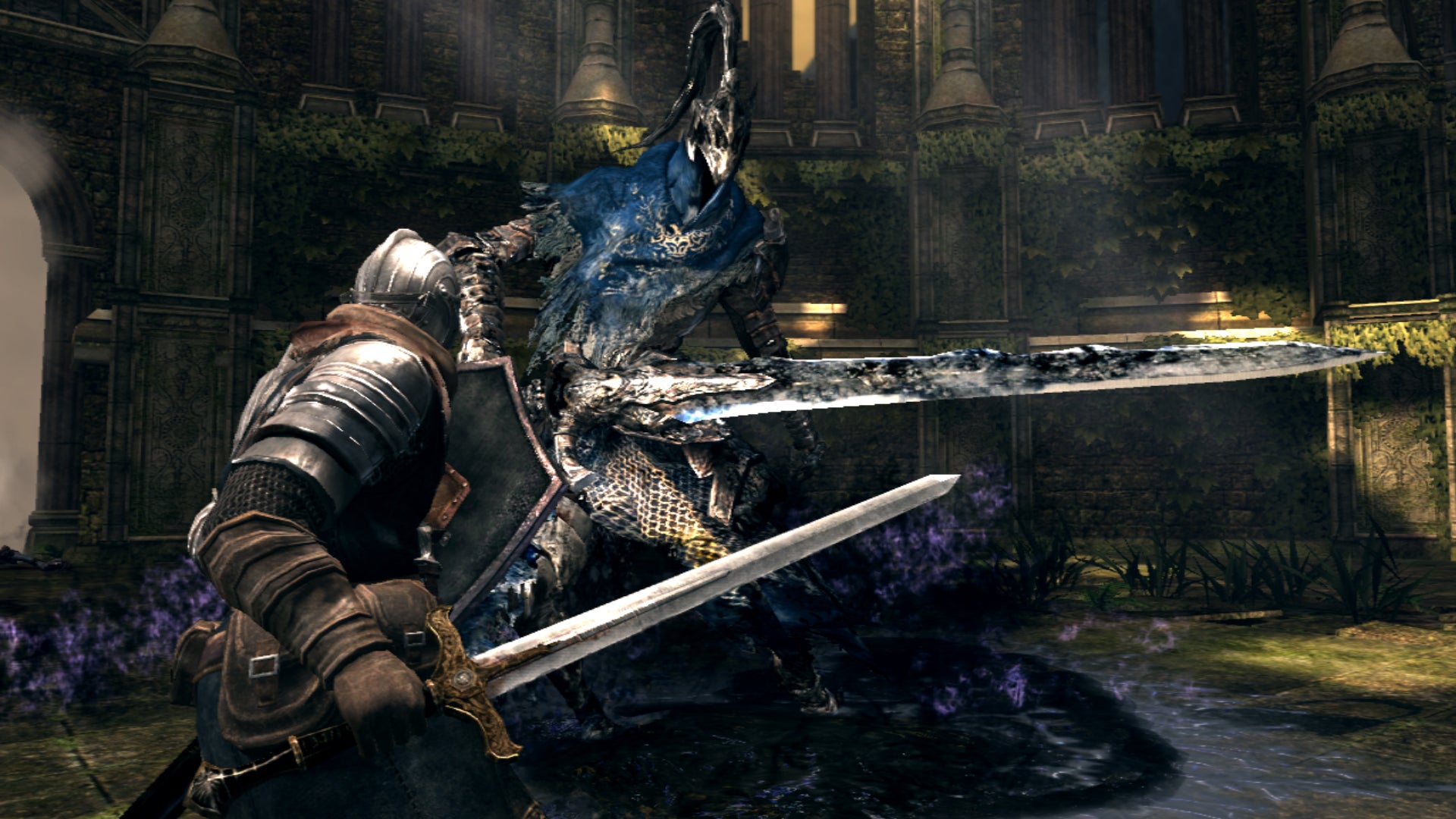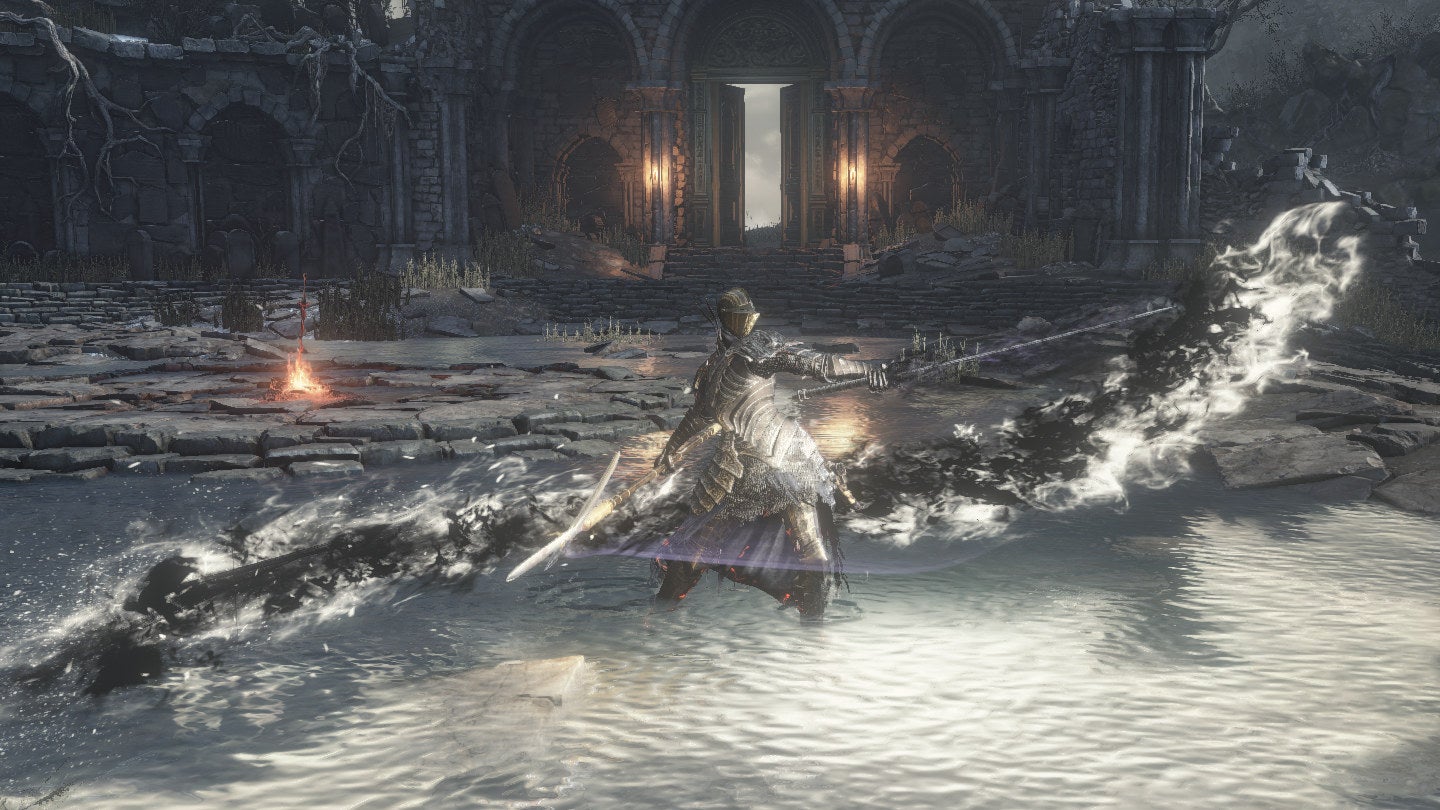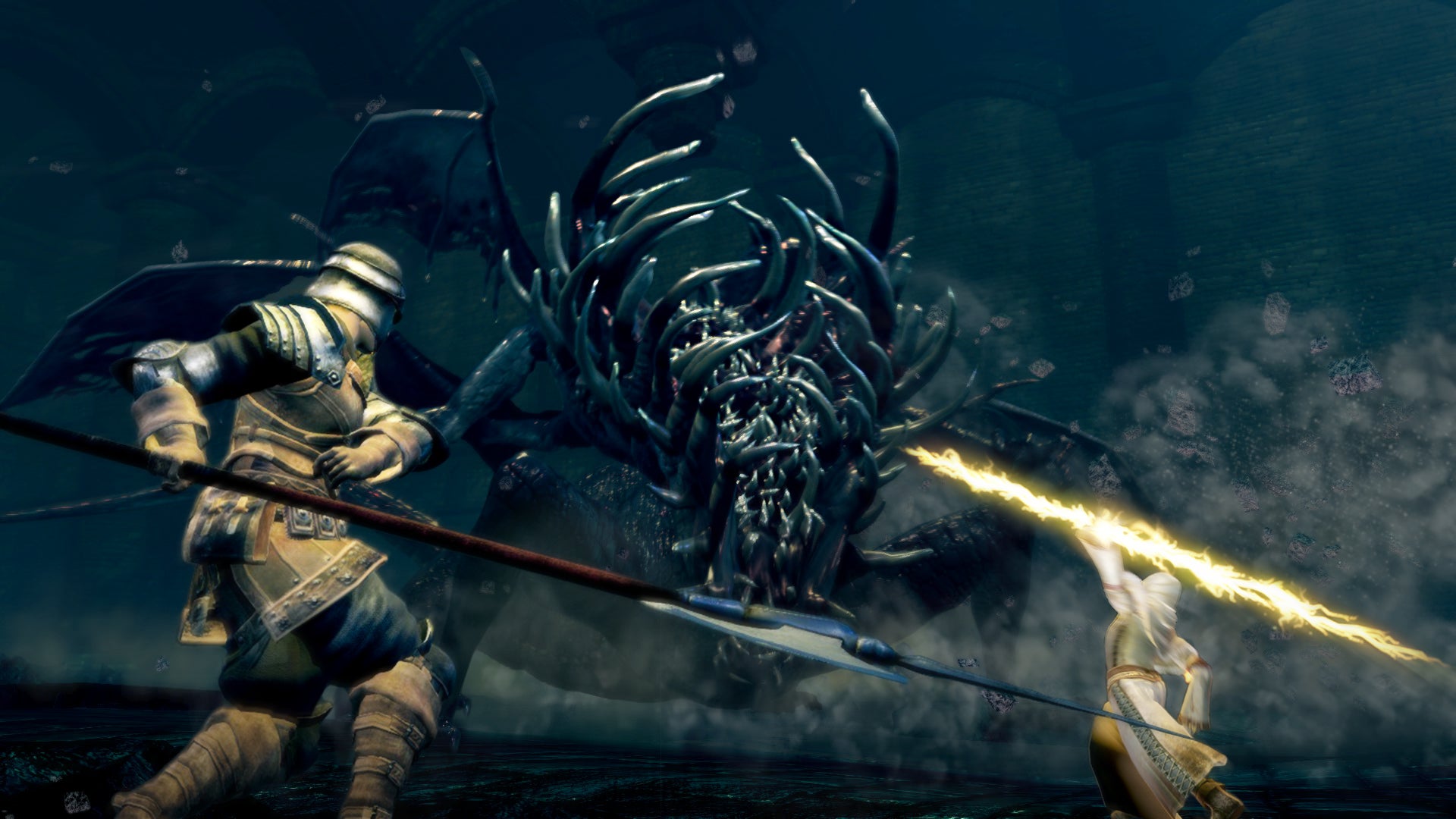Literally every other part of the game. Okay, okay, I’m being hyperbolic in a cheap effort to drag you into reading the rest of the article, but if you’re reading this, it obviously worked! Hilarious comedic exaggeration aside, the bosses in Dark Souls (which I’m going to focus on for clarity, though everything applies to the rest of the genre too) are often talked about as the high points of the game, but that’s absolutely counter to my experience. From speaking to friends and random strangers I accost in kebab shops at 2am, I’m not alone in this either. There’s nothing wrong with the bosses in Dark Souls, they’re some of the best in the business. (Except for the Capra Demon and his bloody dogs. Absolutely hateful rubbish, that.) It’s just that, by and large, the experience isn’t all that different to any other action game. Lots of big spectacle and learning attack patterns until you can avoid the dangerous bits long enough to do sufficient poking to the soft bits. It’s fun, mostly, but it’s not why I’m picking Dark Souls over, say, Devil May Cry. Dark Souls is, according to the objectively correct folks at this very webbed site, one of the best RPGs on the PC. For some, it’s the kind of truth pill that’s hard to swallow, and I’m not just talking about grognards who refuse to call anything that isn’t turn based with visible dice rolls an RPG. It’s an action game, right? Sitting in that nebulous action-adventure genre, which is olde timey games journo speak for “doesn’t fit into any of our other categories.” Here’s the thing: replicating that old school RPG feel isn’t just about clattering polyhedrals and +1 to save vs funge. The real magic is in carefully navigating an unknown world where danger lurks around every corner, anything is possible and no one, not a solitary soul, cares if you live or die. That’s what Dark Souls absolutely nails. Most of it is invisible, because so much of the culture around games, both video and otherwise, only recognises the bits with dice rolling, button pushing or mouse clicking as the real game. It’s the same poor understanding that leads to derisive sneering about “walking simulators”, but Dark Souls demonstrates why something as simple as walking is such a big part of a game. Much of Dark Souls’ oft-touted difficulty is really just being expected to take your time navigating the environment and paying attention to your surroundings. There are hidden traps and lurking enemies, many of which will quite happily kill you in one shot. You have to adapt, move slower, remember to look up, keep your shield raised as you carefully edge round a blind corner. None of that, with the exception of holding down the block button, requires any real mechanical input beyond, well, walking. However, you’re still playing the game, you’re still learning and honing skills. The same actions in a tabletop RPG, or a video game aping that form of simulation, would have the player rolling spot, search and stealth checks and remembering to tell the GM that they were moving defensively. It’s the same stuff, Dark Souls just takes advantage of the video game format and removes the obfuscating layers of statistics and dice. While you no longer have to imagine your surroundings, figuring out how everything works through careful observation and experimentation is still the name of the game. Knowledge is power. The same approach applies to the business of putting swords in faces and nowhere is that clearer than the Catacombs, which are stuffed full of Harryhausenesque skeletons, stutteringly advancing on you with deceptive speed and an absolute refusal to stay down. To permanently return the skellies to the grave, you have to track down and dispatch the nearby necromancers who are reanimating them, which is easier said than done with an undead legion on your heels. Unless you apply a bit of good old dungeoneering knowledge and go in with a Divine weapon, a bit of holy juice that ensures they don’t get up again. Nowhere does the game tell you “hey, use a Divine weapon to prevent skeleton reanimation.” The description for the Divine weapon infusion contains the instructions “Use against Undead and the pawns of necromancers”, but that’s all the guidance you get. For an even easier time, using a blunt weapon will make the skeletons crumble with a hit. No wonder clerics use maces! It’s a (bone) cracking example of how a little deduction and a pinch of fantasy game logic takes a tricky section of the game and makes it a walk in the park. The enemies you encounter during these dungeon delves are really where the game’s superb melee combat shines, too. As mentioned, poking away at the big bosses is fun, but the cut and thrust of the more bread and butter encounters is a much more engaging experience. The typical beginner Dark Souls melee involves hiding behind a big shield and occasionally hacking inexpertly away whenever it seems safe to do so. Even then, you’re being taught the basics of managing stamina and the punishment that comes with failing to do so. Any enemy can finish you off pretty darn quick if you let them, but the reverse is also true. Striding through the Undead Burg with a bit of experience under your belt, deftly parrying clumsy attacks and answering with a quick riposte, or smartly sliding around a hapless hollow for a swift backstab, is one of gaming’s great pleasures, one that is only enhanced by the knowledge that one wrong move and you’ll be hacked to death by a walking corpse in an axe-wielding frenzy. The very best enemies are the ones with access to movesets comparable to yours, heightening both the panic of your first fumbling exchanges and the satisfaction that comes with later duelling them as equals, then eventually as a master. It’s this feeling of slowly amassing the knowledge and experience to master the various challenges on offer that is the core of what makes Dark Souls great. The intertwining environments and overlapping systems come together to make such an expertly crafted, cohesive whole. Stripping out the grandstanding boss encounters and pointing to them as the apex of the experience feels almost profane. Trudging around in the muck with shield raised high, desperately scanning for traps and ambushes, that’s the Dark Souls of Dark Souls.


